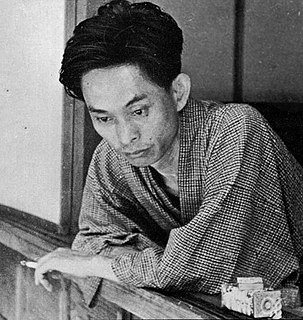Цитата Альберта II, принца Монако
Те из нас, кому посчастливилось знать мою мать, ее семью и друзей, знали ее как искреннюю, теплую и любящую женщину, которая всегда ставила свою семью на первое место.
Связанные цитаты
Подросток не развивает свою идентичность и индивидуальность, выходя за пределы своей семьи. Ее не запускает какая-то магическая бессознательная динамика, в соответствии с которой она отвергает свою семью в пользу своих сверстников или большего общества... Она продолжает развиваться по отношению к своим родителям. Ее мать по-прежнему имеет на нее большее влияние, чем ее отец или ее друзья.
Иногда мы принимаем определенные убеждения в детстве и используем их автоматически, когда становимся взрослыми, даже не сверяя их с реальностью. Это напоминает историю о женщине, которая всегда отрезала конец индейке, когда ставила ее в духовку. Ее дочь спросила ее, почему, и ее мать ответила: «Я не знаю. Моя мать всегда так делала». Затем она пошла и спросила свою мать, которая сказала: «Я не знаю. Моя мать всегда так делала». Она пошла и спросила у бабушки, которая сказала: «Печь была недостаточно большой».
Женщина молчала, опустив глаза в пол. Шимамура дошел до того, что знал, что только демонстрирует свое мужское бесстыдство, и все же вполне вероятно, что женщина была знакома с этим недостатком и не должна была его шокировать. Он посмотрел на нее. Быть может, густые ресницы опущенных глаз делали ее лицо теплым и чувственным. Она слегка покачала головой, и снова легкий румянец залил ее лицо.
Она сказала своему терапевту, что это напомнило ей о возвращении домой летом после первого года обучения в Рутгерсе, о возвращении в теплую ванну семьи и друзей, о том, как она полюбила его на неделю или две, а затем почувствовала себя в ловушке, умирая от желания вернуться в школу, скучая. ее соседки по комнате и ее симпатичный новый бойфренд, уроки и вечеринки и веселые разговоры перед сном, впервые поняв, что теперь это была ее настоящая жизнь, что это, несмотря на все, что она когда-либо любила в ней, закончилось навсегда .
Для женщины просто нет достойного образа жизни в одиночестве. О, она, возможно, может уживаться в финансовом отношении (хотя и далеко не так хорошо, как мужчина), но в эмоциональном плане ее никогда не оставляют в покое. Ее друзья, ее семья, ее коллеги по работе никогда не позволяли ей забыть, что ее безбрачие, ее бездетность - ее эгоизм, короче говоря, - это упрек американскому образу жизни.
Необыкновенная женщина зависит от обычной женщины. Это только тогда, когда мы знаем, каковы были условия жизни средней женщины - количество детей, были ли у нее собственные деньги, была ли у нее отдельная комната, были ли у нее помощники по воспитанию семьи, были ли у нее прислуги. независимо от того, была ли часть работы по дому ее обязанностью — только тогда, когда мы можем измерить образ жизни и опыт, ставший возможным для обычной женщины, мы можем объяснить успех или неудачу выдающейся женщины как писательницы.
Все мы, все, кто знал ее, почувствовали себя такими здоровыми после того, как мылись на ней. Мы были так прекрасны, когда стояли верхом на ее уродстве. Ее простота украшала нас, ее вина освящала нас, ее боль заставляла нас светиться здоровьем, ее неловкость заставляла нас думать, что у нас есть чувство юмора. Ее невнятность заставила нас поверить, что мы красноречивы. Ее бедность сделала нас щедрыми. Даже ее сны наяву мы использовали, чтобы заставить замолчать наши собственные кошмары.
Нарциссическая, властная, собственническая женщина может преуспеть в том, чтобы быть «любящей» матерью, пока ребенок маленький. Только действительно любящая женщина, женщина, которая более счастлива в том, чтобы отдавать, чем в том, чтобы брать, которая твердо укоренилась в своем собственном существовании, может быть любящей матерью, когда ребенок находится в процессе разлуки.
Когда обездоленная мать начинает получать доход, ее мечты об успехе неизменно сосредотачиваются на ее детях. Вторым приоритетом женщины является домашнее хозяйство. Она хочет купить посуду, построить более прочную крышу или найти кровать для себя и своей семьи. У мужчины совсем другой набор приоритетов. Когда обездоленный отец получает дополнительный доход, он уделяет больше внимания себе. Таким образом, деньги, поступающие в домохозяйство через женщину, приносят больше пользы семье в целом.
Он всегда был частью ее мыслей, и теперь, когда он стал реальным, он неизбежно стал частью ее жизни, но все было так, как она говорила своей матери: слова о том, что он был частью ее или что они больше, чем друзья, звучали как любовь, но это тоже было похоже на потерю. Все слова, которые она знала, чтобы описать, кем он был для нее, были взяты из любовных историй и песен о любви, но эти слова никто не имел в виду на самом деле.






































